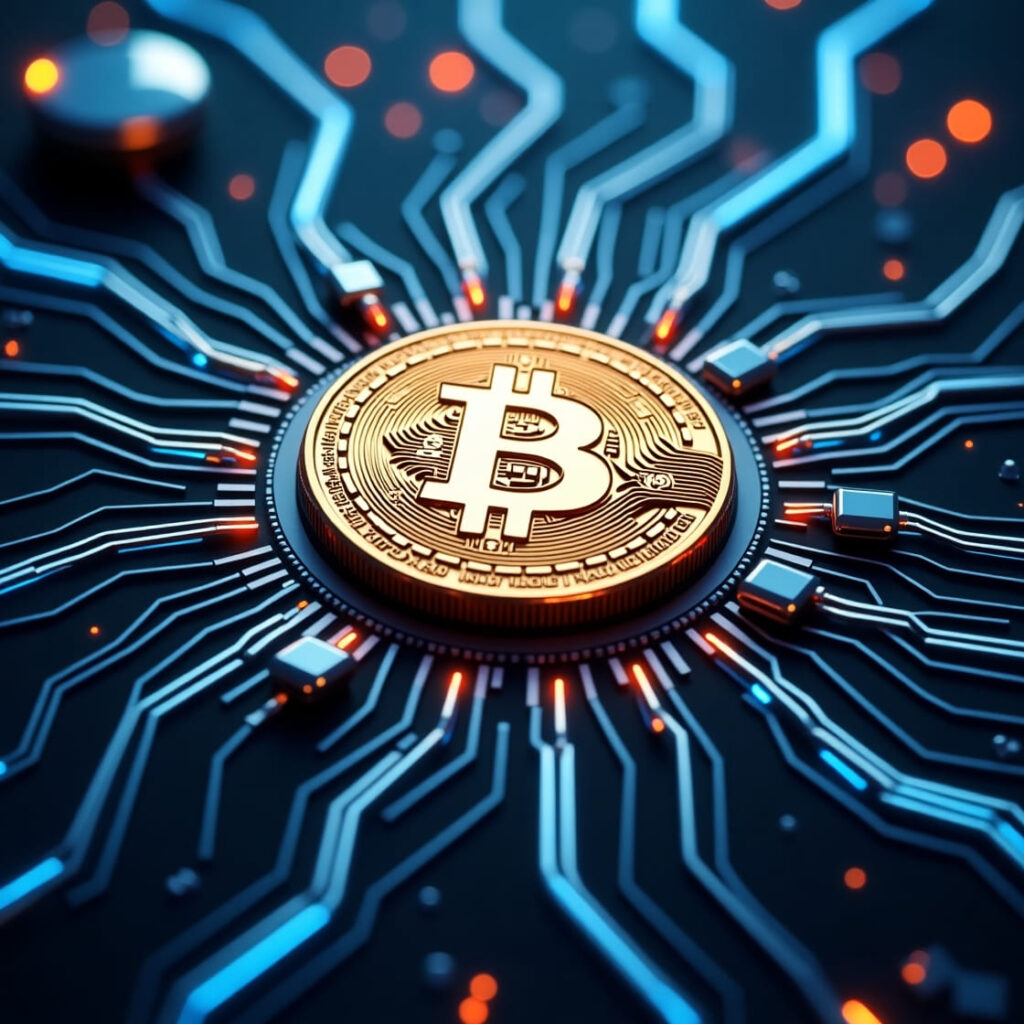
Bitcoin Climbs as Elon Musk Says Tesla ‘Likely’ to Accept It Again
Back in 2021, the cryptocurrency world was buzzing when Elon Musk, the billionaire CEO of Tesla and SpaceX, dropped a bombshell at The B Word conference. He announced that Tesla was “most likely” to resume accepting Bitcoin as payment for its electric vehicles, sending the price of Bitcoin soaring past $30,000. This wasn’t just a casual comment—it was a reversal of Tesla’s earlier decision in May 2021 to halt Bitcoin payments due to environmental concerns. So, what’s behind this flip-flop, and why does it matter? Let’s dive into the details, the context, and the ripple effects of Musk’s influence on the crypto market.
The Backstory: Tesla’s Rollercoaster with Bitcoin
To understand why Musk’s statement caused such a stir, we need to rewind a bit. In February 2021, Tesla made headlines by announcing it had invested a whopping $1.5 billion in Bitcoin and would start accepting it as payment for its cars. This was a big deal—Bitcoin’s price surged to record highs, hitting $44,200 shortly after the news broke. For crypto enthusiasts, it felt like a massive endorsement from one of the world’s most influential companies. Tesla, a brand synonymous with cutting-edge tech and sustainability, was signaling that Bitcoin was going mainstream.
But the honeymoon didn’t last long. Just two months later, in May 2021, Musk pulled the plug, citing the environmental impact of Bitcoin mining. The process of mining Bitcoin—using powerful computers to solve complex mathematical problems—consumes enormous amounts of electricity, often powered by fossil fuels like coal, especially in places like China. Musk, who’s built a reputation as an environmental advocate with Tesla’s mission to “accelerate the advent of sustainable energy,” said the company couldn’t justify supporting a currency that relied on such energy-intensive practices. Bitcoin’s price tanked by more than 10% after the announcement, and the crypto community was left reeling. Some felt betrayed, accusing Musk of hyping Bitcoin only to backtrack when it suited him.
Fast forward to July 2021, and Musk’s tone shifted again. Speaking at The B Word conference alongside Twitter CEO Jack Dorsey, he said Tesla was likely to resume accepting Bitcoin once it could confirm that at least 50% of Bitcoin mining relied on renewable energy sources, with a trend toward increasing that percentage. He claimed to have been doing “due diligence” on the issue, suggesting that recent shifts—like the shutdown of coal-powered mining operations in China—were moving the industry toward greener practices. This news sent Bitcoin’s price climbing again, with an 8% jump in a single day.
Why Musk’s Words Move Markets
Elon Musk isn’t just any CEO. With millions of followers on social media and a knack for making headlines, his statements can send shockwaves through financial markets—especially in the volatile world of cryptocurrency. Whether it’s tweeting about Dogecoin or commenting on Bitcoin, Musk has a unique ability to influence prices. Critics, like Ethereum creator Vitalik Buterin, argue that this influence is fleeting and that markets will eventually “learn to cope” with Musk’s sway. But for now, his words carry weight.
Take the timeline of 2021 as an example. When Tesla announced its $1.5 billion Bitcoin investment in February, the crypto’s price soared. When Musk reversed course in May, it plummeted. His July announcement about potentially resuming Bitcoin payments? Another price spike. This pattern has led some to accuse Musk of market manipulation, with figures like Magda Wierzycka, CEO of South African financial services company Sygnia, calling for the SEC to investigate his tweets. Musk has denied these claims, insisting he doesn’t “dump” his holdings to profit from price swings. “If the price of Bitcoin goes down, I lose money,” he said at the conference. “I might pump, but I don’t dump.”
Musk’s personal stake in cryptocurrencies adds another layer to the story. At The B Word conference, he revealed that he personally owns Bitcoin, Ethereum, and Dogecoin, in addition to the Bitcoin held by Tesla and SpaceX. This transparency was meant to counter accusations that he’s just playing the market for profit, but it also underscores how deeply invested he is—literally and figuratively—in the crypto space.
The Environmental Debate: Bitcoin’s Dirty Secret
At the heart of Tesla’s back-and-forth with Bitcoin is the environmental question. Bitcoin mining is notoriously energy-intensive. According to Cambridge University’s Bitcoin Electricity Consumption Index, the process uses more electricity annually than entire countries like Malaysia or Sweden. In 2021, much of this energy came from fossil fuels, particularly in China, where coal-powered plants fueled a significant portion of global mining operations.
Musk’s concern about this wasn’t new or unique. Environmentalists and some Tesla investors had criticized the company’s initial decision to accept Bitcoin, pointing out the irony of an eco-friendly car company embracing a currency that relied on polluting energy sources. When Musk announced the suspension of Bitcoin payments in May, he cited the “rapidly increasing use of fossil fuels for Bitcoin mining, especially coal, which has the worst emissions of any fuel.” This move was seen as a nod to Tesla’s sustainability mission, but it also sparked backlash from crypto fans who felt Musk was abandoning them.
By July, however, Musk seemed more optimistic. He pointed to changes in the mining landscape, like China’s crackdown on crypto mining, which forced many miners to relocate to places like the United States. According to industry experts like Fred Thiel of Marathon Digital and Whit Gibbs of Compass, mining in the U.S. was increasingly powered by renewables, with estimates suggesting over 50% of U.S.-based mining relied on clean energy sources. Musk’s condition for resuming Bitcoin payments—that at least 50% of mining energy be renewable—seemed closer to being met, though he emphasized the need for further verification.
What’s Changed Since 2021?
Musk’s 2021 comments at The B Word conference didn’t lead to an immediate return of Bitcoin payments at Tesla, but they kept the conversation alive. Fast forward to 2025, and the crypto landscape has evolved. Recent posts on X suggest renewed excitement about Tesla potentially re-entering the Bitcoin space, with some users claiming the company might resume accepting it as early as next month. While these claims are unconfirmed and lack official backing from Tesla or Musk, they reflect the ongoing speculation around his influence.
Bitcoin’s price has also seen dramatic growth. By July 2025, posts on X reported Bitcoin reaching $109,500 after Musk announced his new “America Party” would embrace the cryptocurrency, with some users calling it a “super bullish” move. This aligns with Musk’s broader critique of fiat currency and U.S. government spending, which he’s warned could weaken the dollar and boost Bitcoin’s appeal as a “digital gold” alternative. Whether Tesla actually resumes Bitcoin payments remains unclear, but the mere suggestion continues to drive market enthusiasm.
The Bigger Picture: Musk, Crypto, and the Future
Musk’s dance with Bitcoin raises bigger questions about the role of cryptocurrencies in a world increasingly focused on sustainability. On one hand, Bitcoin’s decentralized nature and limited supply make it an attractive hedge against inflation and government overspending—issues Musk has been vocal about, especially with his “America Party” platform in 2025. On the other hand, its environmental footprint remains a sticking point for companies like Tesla, which are under pressure to align with green initiatives.
Then there’s the issue of Musk’s outsized influence. As one of the world’s richest people, his endorsements (or criticisms) can make or break markets. While he insists he wants Bitcoin to succeed, his hot-and-cold approach has frustrated investors and crypto purists alike. Some, like Vitalik Buterin, believe the market will eventually outgrow Musk’s sway, but for now, his words are a catalyst for volatility.
Why It Matters
Musk’s July 2021 announcement wasn’t just about Tesla or Bitcoin—it was a snapshot of the broader tensions in the crypto world. Environmental concerns, market volatility, and the power of influential figures like Musk all collide in this story. For Tesla, resuming Bitcoin payments could be a way to tap into the growing crypto economy while reinforcing its innovative brand. For Bitcoin, having a major corporation like Tesla on board could legitimize it further as a currency for real-world transactions. But both sides face risks: Tesla could alienate environmentally conscious investors, and Bitcoin’s price remains at the mercy of Musk’s next tweet.
As of 2025, the question of whether Tesla will actually follow through remains open. But one thing’s certain: when Elon Musk talks about Bitcoin, the world listens—and the market moves. Whether you’re a crypto believer or a skeptic, this saga is a reminder of how quickly things can change in the wild world of digital currency.
Sources
Bitcoin offers no return at all unless you can resell it to a “greater fool”. It is a Seinfeld asset — a speculation based on nothing.
Think of Bitcoin as a Bank account in the cloud, and it’s completely decentralized: not the Swiss government, nor the American.
McDonald’s Jr.
